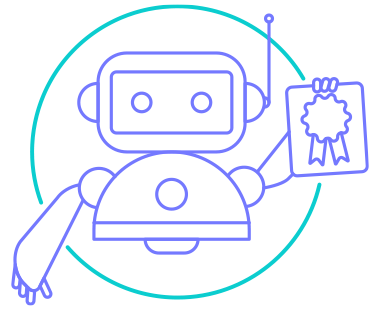PART IV. Proposed OtoCo Governance and Exit to the Community
In this last part of four, we share our proposed governance structure for OtoCo.
The proposed governance structure for OtoCo is a synthesis of various decentralized governance models used by clients of otonomos.com and others in the community we learned from.
Holy Trinity
We blogged earlier about the “Holy Trinity” of entities in most decentralized setups. Our configuration would keep this largely intact:
A token issuance entity
This entity has as its sole purpose the creation and issuance of the OtoCo token. While some projects created their token without legal wrapper, we propose to use an onchain LLC in Wyoming created via otoco.io. This LLC will also own the pre-order staking smart contract.
The OtoCo Foundation
The onchain LLC’s Member will be the OtoCo Foundation in the Cayman Islands. This Foundation has no Founder and no Members, only Beneficiaries and a Director.
The Beneficiaries will be “indeterminate” to be able to include each OtoCo token holder at a given point in time. As Beneficiaries, token holders would then be able to receive grants out of the Foundation, subject to an onchain vote. All holders of OtoCo tokens will have voting rights pro rata their holdings. Further granulation on voting and how grant proposals can be tabled will be proposed at a later stage.
The Foundation’s initial Director is an Otonomos entity, acting purely as a Nominee under strict power of attorney. This first Director will be appointed for an initial period of two years, at which point a rotating 3-member board system will be put in place. In this system, any token holder can stand as candidate for Board membership if supported by a threshold number of token holders. When elected, revolving Board tenure would be for two years, unless a member is terminated earlier subject to an onchain ejection vote.
As with other Blockchain projects, the OtoCo Foundation would act as steward of the project and its community. In this capacity it would receive the proceeds of any token issuance together with the treasury over the balance of issued but unsold OtoCo tokens.
The OtoCo operating entity and its subsidiaries
Finally, all operations of OtoCo would be held under an offshore holding, likely to be located in the British Virgin Islands, which in turn will own at least one operating entity in a suitable onshore jurisdiction.
The holding will fund itself in two ways:
By way of grants received from the Foundation;
By selling call options over the tokens it has received from the Foundation’s reserve.
This funding in turn will be used to finance the operations of the holding’s subsidiary, which we plan to set-up as a C-Corp in the U.S. (or an equivalent operating entity outside the U.S.) to have the flexibility to raise equity capital at the operating entity level.
A clear commercial purpose
As indicated earlier, OtoCo’s business model clearly has revenue baked in.
We believe it has the potential to become one of the first community-owned project with a clear commercial purpose: to build the onchain tools that help build blockchain ventures.
As a result, OtoCo may attract traditional financing through equity capital in addition to funding from its token issuance.
Here too we hope to show the way towards an inclusive ownership model where value can accrue both at the token level for non-shareholder token holders and at the stock holding level for traditional equity stakeholders.
The legal and governance structure described above in many ways already caters for this: traditional stockholders of the operating company (e.g. the US C-Corp), including the OtoCo holding itself, could steward the project towards a listing or a trade-sale, whilst token holders gain from the demand for the OtoCo token.
Radical transparency: Towards the open company of the future
Finally, the overriding governance approach will be one of radical transparency.
As much as it is uses experimental code, OtoCo also is an experiment in how a community-owned project can be managed and hopefully thrive under the full scrutiny and with full accountability vis-a-vis its token holders and traditional stockholders alike.
For instance, we want to introduce full 3D accounting, with all revenue and expenses accounted for on blockchain and reported in crypto currency.
On the corporate action side, we want all voting and other governance actions such as the signing of resolutions signed via authenticated wallets and stored on IPFS.
Here too we hope we can help develop a standard for the open company of the future, and expect that many of the tools we will need for OtoCO will meet a demand from other blockchain projects too.
Help shape OtoCo’s governance by joining our official Telegram channel today!

